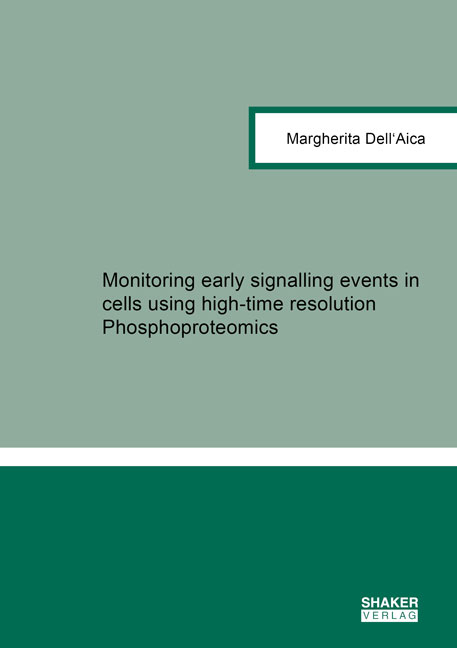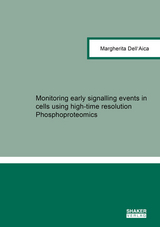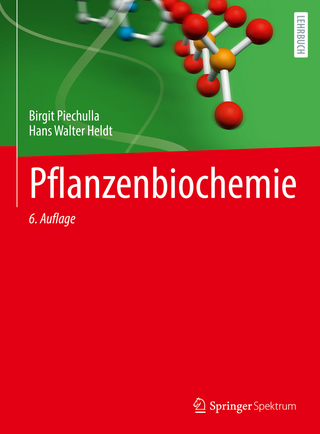Monitoring early signalling events in cells using high-time resolution Phosphoproteomics
Seiten
Cells can rapidly transmit signals through post-translational modifications, particularly reversible protein phosphorylation. Although signal transduction can occur within milliseconds to seconds, our knowledge on temporal profiles of early signalling events is limited. This can be mainly attributed to the lack of tools that enable reproducible stimulation and quenching of cells with high temporal resolution. Thus, technical issues such as delayed mixing and quenching, as well as limitations in overall sample handling, impede the study of very early time points (e.g. 5-10 s after stimulation) and/or substantially limit the temporal resolution and consequently reproducibility in quantitative studies. However, upon ligand-receptor interaction, protein (auto) phosphorylation and downstream signalling cascades are already triggered earlier and thus studying initial signalling events requires alternative strategies. Therefore, we developed a µmixer µfluidic device, the M2D, that allows us to conduct fully controlled temporal stimulation and quenching/lysis of cells to study signalling events as early as 100 ms after stimulation, with a temporal resolution of 0.10 ± 0.08 s. We combined our device with quantitative phosphoproteomics to study early EGFR (epidermal growth factor receptor) signalling events.
| Erscheinungsdatum | 02.07.2020 |
|---|---|
| Reihe/Serie | Berichte aus der Biochemie |
| Verlagsort | Düren |
| Sprache | englisch |
| Maße | 148 x 210 mm |
| Gewicht | 251 g |
| Themenwelt | Naturwissenschaften ► Biologie ► Biochemie |
| Schlagworte | EGFR • Mass Spectrometry • microfluidics • Proteomics |
| ISBN-10 | 3-8440-7432-5 / 3844074325 |
| ISBN-13 | 978-3-8440-7432-1 / 9783844074321 |
| Zustand | Neuware |
| Haben Sie eine Frage zum Produkt? |
Mehr entdecken
aus dem Bereich
aus dem Bereich




